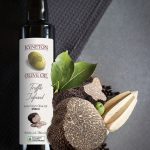Olive oil is a well-known superfood with plenty of culinary uses (and health benefits), but its use is nothing new – by a long shot. Perhaps first cultivated in the Neolithic period around 6,000-8,000 years ago, olives and their residual oil have long been used by ancient peoples for some pretty cool uses you may or may not have known about. Here are five of them:
01. Lamps & Lighting
Perhaps you’ve heard that in ancient times, homes were traditionally lit with fuels such as olive oil. Did you know, however, that olive oil is nearly 99% pure fuel, meaning that it produces neither smoke nor soot and will extinguish if dropped? Ancient olive oil lamps looked a fair bit different in their construction than later, paraffin-based candles, such as a thicker wick that always needed to be saturated. The thicker wick probably has to do with its low volatility and high flash point, requiring about 300 degrees Celsius to burn.
02. The Original Olympic Games
It’s pretty well-known that Olympic athletes during the original Olympic Games were awarded with crowns of olive branches. So much reverence was shown to the olive in the ancient world that the cutting of these branches was no ordinary matter and instead ritualistic. These branches were specifically cut with a golden knife by 12-year-old boys whose parents were still living.
Moreover, olive oil was commonly applied topically to athletes’ skin during preparation for massages, a tradition that is still followed to this day albeit for perhaps different reasons.
03. Mythological Purposes
The mighty olive tree was a central part of the ancient Greek economy, and so too was it deeply tied in with the prevailing mythology of Athens. In a contest between Athena and Poseidon over who would earn control over the city, Athena brought her spear to bear on a rock, from which sprung the olive tree, her gift to her new people.
Interestingly, the oil and its production is owed to her mythological niece, Aristaeus, who is the protector of olive oil presses, plantations, trees, and the entire production process of this ‘liquid gold.’
04. Medicine
Following on the previous point, Homer called olive oil ‘liquid gold,’ Hippocrates called it ‘the great healer,’ and Galen praised its health benefits. Although they may not have understood the medical science of today, they were certainly onto something when describing the health benefits of olive oil.
Today, it’s known to have antibacterial properties, antioxidants, to lower blood pressure levels, and is a staple of the Mediterranean diet, widely recognised as one of the healthiest diets in the world.
05. Soap & Skin Care
Liquid soap and bars simply weren’t known to be used in ancient times, such as in ancient Rome, but olive oil certainly was. Men and women alike in Rome’s bath facilities would apply olive oil to their skin (for the weather citizens, slaves would likely have done this task). They would then scrape off the residual skin flakes, dirt, and oil with a device called a stigil.
The residual gloop was highly prized, especially if it came from a sweaty gladiator, as women’s cosmetics. Probably wouldn’t want to do that today, though.
Kyneton Olive Oil
Experience authentic Australian Made Italian heritage olive oil with Kyneton Olive Oil today.


